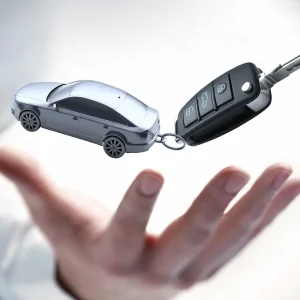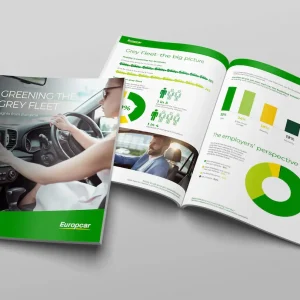
The UK’s journey to net-zero has hit a bump in the road. The SMMT predicted the UK is likely to fall short of its 2024 ZEV targets. The mandate requires 22% of new car sales to be zero-emission vehicles, yet traditional automakers are struggling, with the battery electric vehicle market share predicted to reach only 19.8%.
EV uptake was initially driven by early adopters taking high-value luxury vehicles, this was further bolstered as more options became available to replace essential-user and perk company cars at a senior level. Most recent figures from SMMT showed fleet EV registrations increased by 11%, while private registrations dropped 2%. With the corporate market leading the way, what part does salary sacrifice have to play?
Salary sacrifice has already been fundamental in the UK’s road to net-zero. Appealing tax benefits and savings for businesses and drivers have made EVs accessible to wider employee populations, however, one of the biggest challenges has been financial accessibility. Even with a salary sacrifice scheme and tax-saving incentives, the hefty EV price tag has meant adoption still wasn’t feasible for some. We’re starting to see this change with more affordable EVs being launched. This has been moved forward by the influx of Chinese manufacturers offering lower-cost EVs to the UK market, and now we’re seeing some of the more recognised manufacturers deliver their own low-cost EV models.
The all-new Dacia Spring, for example, may not dominate company car choice lists but it will become an extremely cost-effective option through salary sacrifice with price points around £200-£300pm. Finally, the EV becomes accessible to a whole new band of potential adoptees.
There is also a huge uptake opportunity in supplying used EVs through salary sacrifice. With savings of up to 50% versus a new EV on salary sacrifice, this will appeal to yet another population of employees who have traditionally found value in used retail vehicles. While such an offering may have been in part driven by lease companies mitigating losses on already-written residual values, it is also helping to create a stronger second-hand market for EVs, which will play a vital role in the continued growth. In our experience, once a driver has adopted an EV, they rarely look back. This increase in uptake will then put pressure on the government to accelerate infrastructure plans and encourage more competition within the market.
Additionally, if targets are to be met, the continuation of tax incentives is imperative. Despite the retail EV market struggling to keep pace, the demand from the corporate market – supported by salary sacrifice schemes – will give us a good chance of achieving the ambitious goals set for this year and beyond. If you would like to discuss how salary sacrifice could help your business and employees get on the road to net-zero, book a call with our expert team. Head to jct600vls.co.uk/talk-to-us for more details.
Tel: 0113 391 1791
Email: contact.vls@jct600.co.uk





